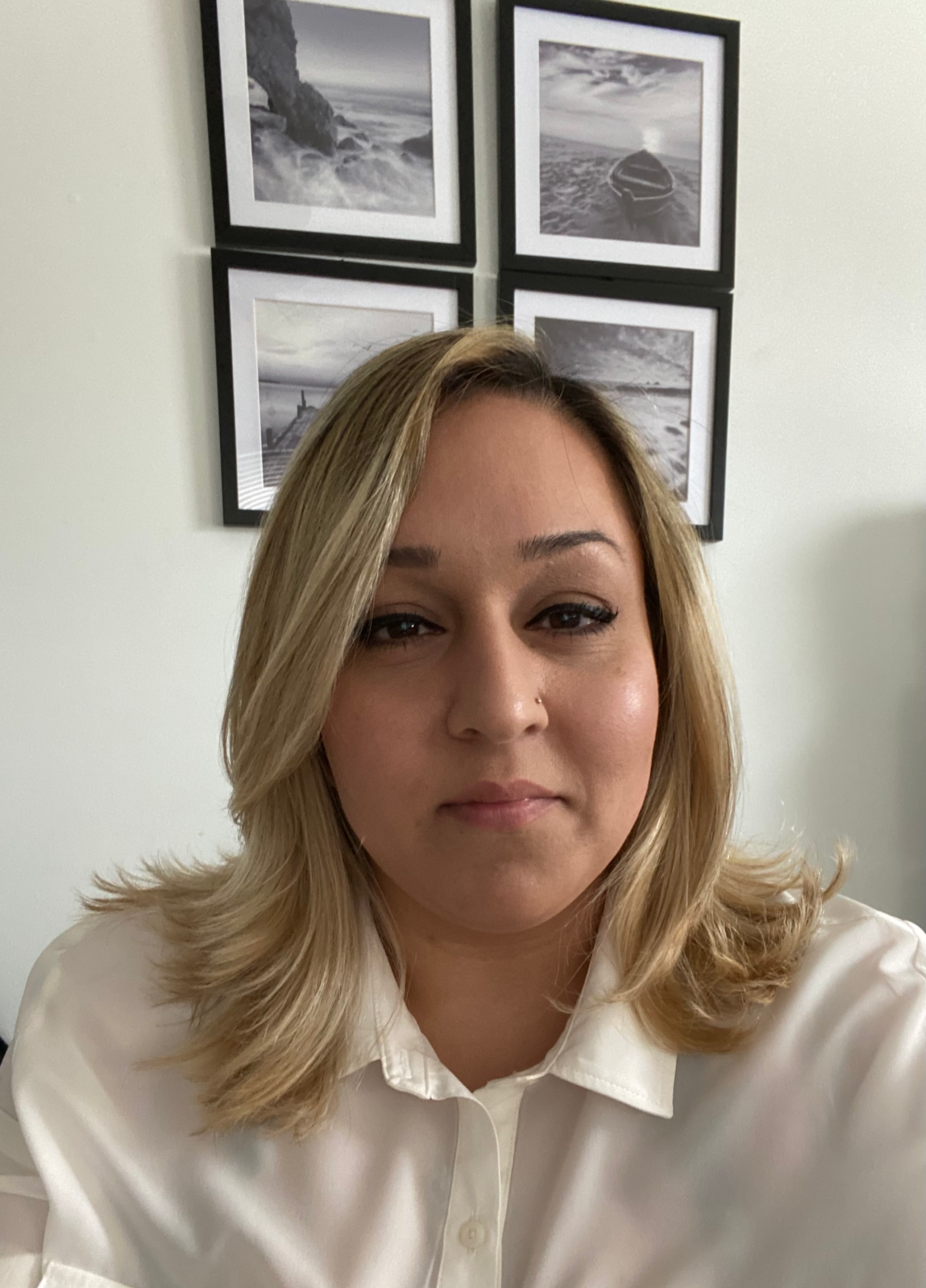Child / Adolescent - Anxiety
Caregiver-Based Group Treatment for Childhood Selective Mutism: A pilot non-inferiority trial of Supportive Parenting for Anxious Childhood Emotions for Selective Mutism (SPACE-SM)
(PS3-D80) Caregiver-based Group Treatment for Childhood Selective Mutism: A Pilot Non-inferiority Trial of Supportive Parenting for Anxious Childhood Emotions for Selective Mutism (SPACE-SM)

Vanessa Y. Ng, M.A.
Clinical Psychology Doctoral Student
Hofstra University
Long Island City, New York- JL
Janice Lu, M.A.
Doctoral Student
Hofstra University
Hempstead, New York - KR
Kyle G. Ross, M.A.
Clinical Psychology Trainee
Hofstra University
Queens, New York 
Sara N. Fernandes, M.A.
Clinical Psychology Trainee
Hofstra University
New York, New York- SR
Sarah Richman, M.A.
Doctoral Student
Hofstra University
New York, New York - LA
Lillian Alford, M.A.
Graduate Student
Hofstra University
Uniondale, New York - RP
Ruby Paisner, B.A.
Camp CHAT co-therapist
Hofstra University
Great Neck, New York - AS
Arielle Snow, M.A.
Doctoral Student
Hofstra University
Bronx, New York - CB
Caroline E. Bucher, M.A.
Clinical Psychology Trainee
Hofstra University
Rocky Point, New York - CA
Caromel Shilpa Anthony Raj, M.A.
Doctoral Student
Hofstra University
Hempstead, New York 
Sana Shad, M.A.
Clinical Psychology Trainee
Hofstra University
Brooklyn, New York- JW
Julia Weisman, M.A.
Doctoral Student
Hofstra University
Hempstead, New York - AF
Anne Fraiman, M.A.
Clinical Psychology Doctoral Student
Hofstra University
Hempstead, New York - NL
Nicole Lui, M.A.
Student
Hofstra University
Queens, New York - PO
Phyllis S. Ohr, Ph.D.
Assistant Director of Clinical Psychology
Hofstra University
Hempstead, New York
Author(s)
Co-Author(s)
Selective mutism (SM) is a pediatric anxiety disorder characterized by the consistent failure to speak in specific social situations where verbal participation is expected, despite fluent production of speech in other social situations (APA, 2013). Children with SM experience significant challenges in a variety of social situations, greatly hindering their academic, social and emotional functioning (Muris & Ollendick, 2015). Typically, SM is treated through weekly individual cognitive-behavioral treatments (Bergman et al., 2013) and Parent-Child Interaction Therapy for SM (PCIT-SM; Carpenter et al., 2014; Cotter et al., 2018). Clinicians have long attempted to address barriers to weekly individual treatment by implementing intensive group behavioral treatments for SM (IGBT-SM; Cornacchio et al., 2019; Kurtz, 2016; Lorenzo et al., 2021). However, geographic and financial disparities on consumers, and time and staff demands on clinics further restrict the accessibility and acceptability of families receiving SM specialty care.
Even with these treatments available, only about half of the children who complete behavioral treatment such as IGBT-SM no longer meet criteria for SM after treatment (Cornacchio et al., 2019). As an explanation, research strongly implicates family accommodation (FA) in the maintenance and course of childhood anxiety disorders, likely including SM. FA refers to changes parents make in their own behavior to help their child avoid or alleviate distress related to the anxiety disorder. Although well-intentioned, FA is associated with greater symptom severity and impairment (Shimshoni et al., 2019). No studies to date have examined and applied the mechanism of FA in the condition let alone treatment of SM (Iniesta-Sepúlveda et al., 2020). Supportive Parenting for Anxious Childhood Emotions (SPACE; Lebowitz et al., 2014) is a theory-driven, parent-based treatment that reduces FA of childhood anxiety symptoms and SM nonverbal behavior. This current study is a pilot non-inferiority trial comparing SPACE (parent-only) to a hybrid in-person (child only) and telehealth (parent only) 5-day IGBT-SM hosted at a university-based community clinic, called Camp CHAT (Challenging High Anxiety of Talking).
Participants included 11 children aged 4 to 10 who met DSM-5 criteria for SM and their primary caregivers. Families were recruited via convenience sampling to participate in either Camp C.H.A.T. or telehealth group SPACE targeting SM (SPACE-SM). Caregivers assigned to Camp C.H.A.T. engaged in four 2-hour caregiver-only telehealth group sessions providing intensive psychoeducation and skills training, while their children engaged in 1-week of five 6-hour IGBT-SM sessions. IGBT-SM sessions mirrored the typical school environment and emphasized gradual exposures. Caregivers assigned to SPACE-SM engaged in seven, two-hour once weekly telehealth group SPACE-SM sessions. SPACE-SM trained parents to recognize their accommodating behaviors, implement specific behaviorally sound plans for reducing target accommodation while maintaining an empathetic and supportive attitude towards their child. Data analysis will be conducted once post-treatment and 8-week follow up assessment is collected.

